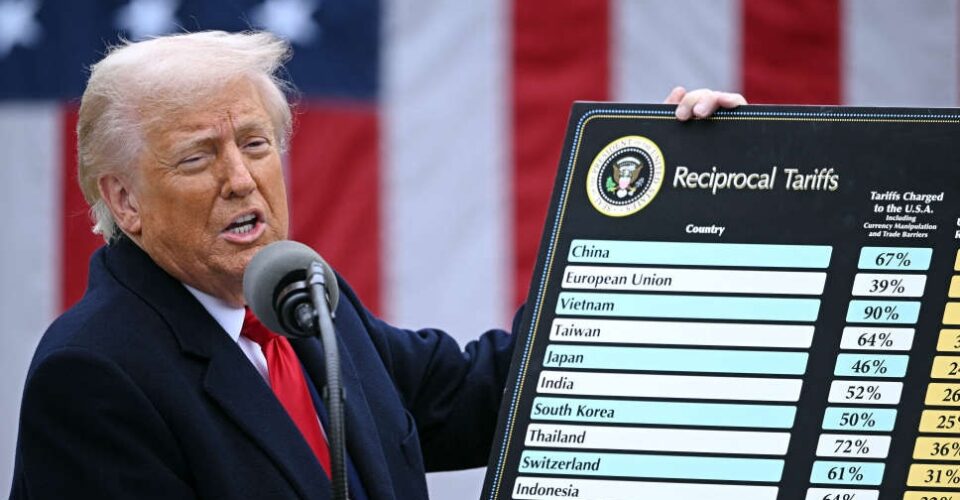US President Donald Trump announced new tariffs on Wednesday. A 10% baseline tariff will apply to all imports into the United States. Some major trading partners will face even higher rates. This move escalates the ongoing trade war.
“It’s our declaration of independence,” Trump stated at the White House Rose Garden. He displayed a poster listing reciprocal tariffs. The list included a 34% duty on China and a 20% tariff on the European Union. These measures respond to existing tariffs on US goods.
Tariff on GCC Countries
The new tariffs also impact GCC nations. The UAE faces a 10% tariff, while Saudi Arabia and Jordan face 10% and 20%, respectively. Trump also announced plans to visit the UAE, Saudi Arabia, and Qatar by May. The White House confirmed that the new tariffs take effect on April 5. Higher rates for select countries will begin on April 9.
Global Trade Impact
These sweeping tariffs will disrupt international trade. They reverse decades of economic liberalization that shaped the global market. Experts predict that trading partners will retaliate. As a result, prices may rise for various products, including bicycles and wine.
Full List of Tariff
GCC and Other Countries
| Country | Tariff |
| UAE | 10% |
| Saudi Arabia | 10% |
| Jordan | 20% |
| Qatar | 10% |
| Bahrain | 10% |
| Oman | 10% |
US Reciprocal Tariffs on Major Trade Partners
| Country | Tariff |
| China | 34% |
| European Union | 20% |
| Vietnam | 46% |
| India | 26% |
| Japan | 24% |
| South Korea | 25% |
| Taiwan | 32% |
| UK | 10% |
| Turkey | 10% |
| Pakistan | 29% |
| Sri Lanka | 44% |
| Brazil | 10% |
The White House also announced new auto import tariffs. These will take effect on April 3. Last week, Trump imposed 20% duties on all imports from China. He also extended 25% duties on steel and aluminum. These measures now affect nearly $150 billion in products.
Trump’s advisers argue that tariffs will restore US manufacturing. However, economists warn of negative effects. They believe tariffs could slow global economic growth and increase recession risks.
Market Reactions on Tariff
Financial markets reacted with volatility. Investors closely watched Trump’s announcements. Since February, US stock markets have lost nearly $5 trillion. Businesses also struggle to plan ahead. The uncertainty surrounding trade policies complicates long-term strategies.
The global trade landscape now faces major disruptions. Countries worldwide are preparing for economic consequences.

